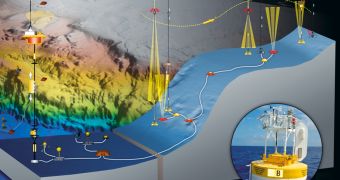Project Trident is a set of tools designed for the scientific community with the promise from Microsoft that it can help accelerate research. Developed by Microsoft Research, Project Trident is a scientific workflow workbench set up to permit bridging raw data to computing systems and facilitate tasks such as interpretation and discovery. In this regard, the Redmond company indicated that Project Trident's workflow technology was capable of streamlining research in astronomy, environmental science, oceanography and additional disciplines. Microsoft is currently offering for download a Community technology Preview build of Project Trident.
“Project Trident is a scientific workflow workbench MSR External Research has been working on for the past few years, which allows scientists to analyze large, diverse datasets,” explained Dan Fay, Microsoft director, Earth, Energy, and Environment. Project Trident Scientific Workflow Workbench delivers the necessary tools to help scientists not only ingest data, but also make sense of the information gathered in order to catalyze new discoveries.
Microsoft Research is responsible for putting together Project Trident, more specifically the External Research Division. The Trident implementation relies on Microsoft’s Windows Workflow Foundation, but the software giant has thrown additional technologies in the mix such as SQL Server and Windows HPC Server cluster. Users of the scientific workflow workbench can run Trident workflows via the Trident Workflow Application which is delivered in two flavors, Windows Presentation Foundation and Silverlight. Microsoft Research noted that Trident could also be leveraged for runtime services, which can be added on the framework provided by the workbench. At the same time, developers are welcomed to extend the tools with custom components.
“Built on the Windows Workflow Foundation, this scientific workflow workbench allows users to: automate analysis and then visualize and explore data; compose, run, and catalog experiments as workflows; capture provenance for each experiment; create a domain-specific workflow library to extend the functionality of the workflow workbench; use existing services, such as provenance and fault tolerance, or add new services; and schedule workflows over HPC clusters or cloud computing resources,” Fay added.
Project Trident CTP is available for download here.

 14 DAY TRIAL //
14 DAY TRIAL //